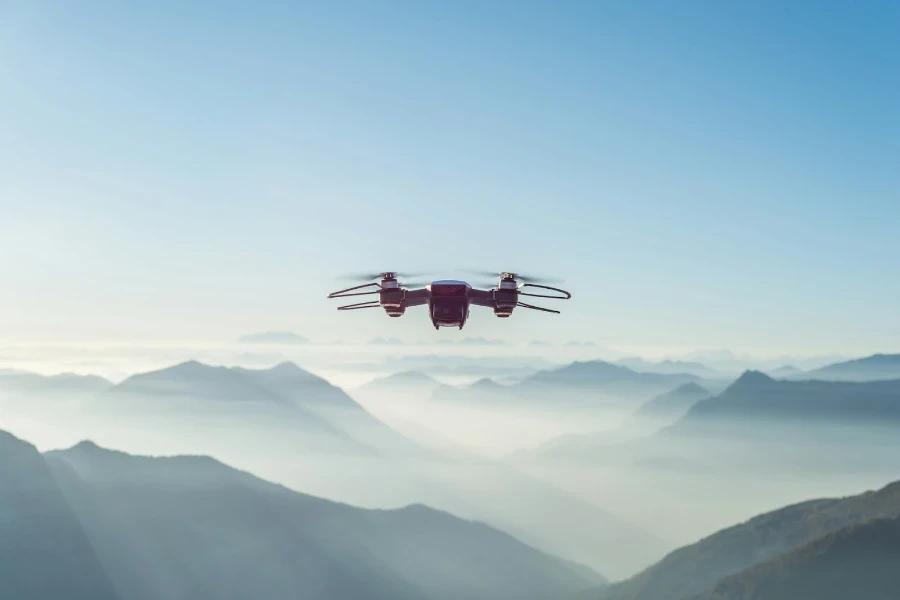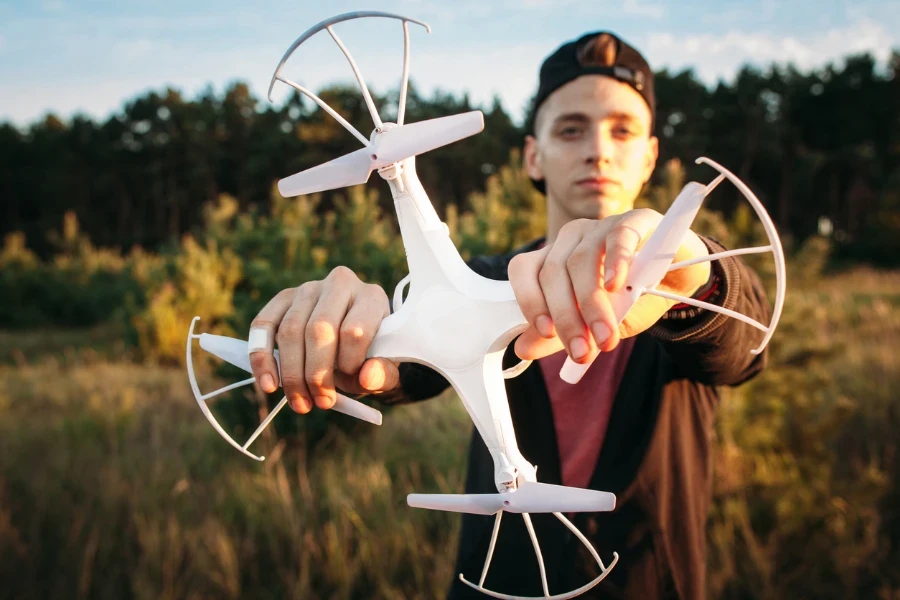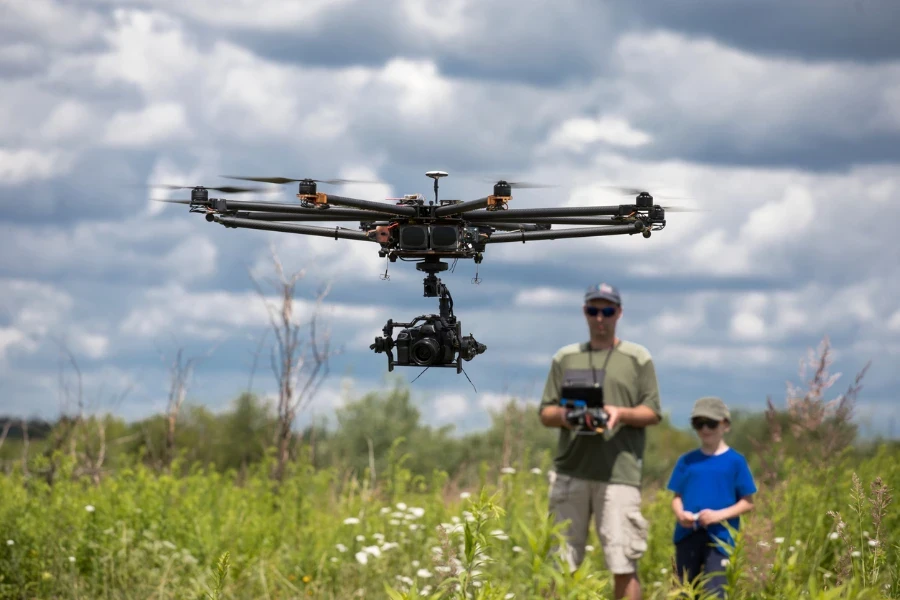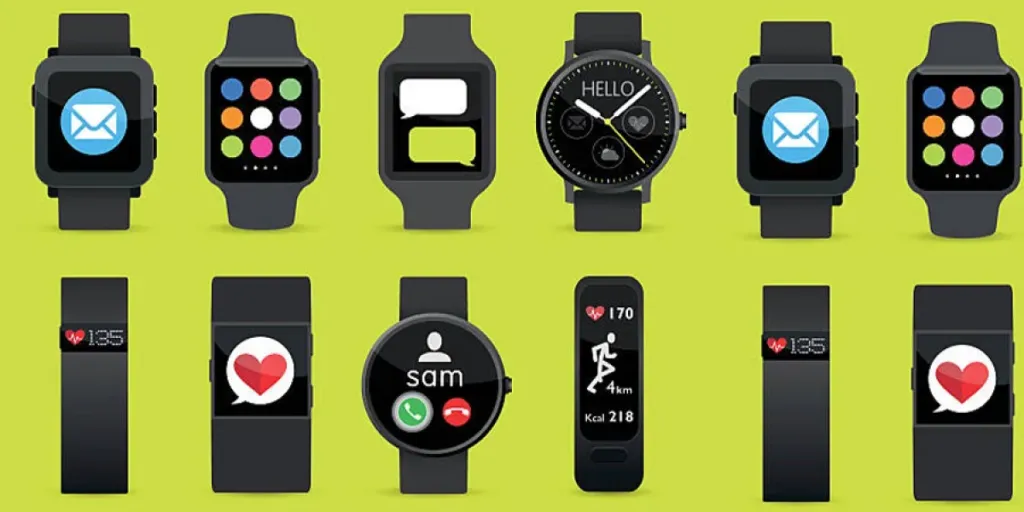Have you considered adding drones to your product lineup and want to know more? Here, we will discuss the latest advancements in drone technology and how to set your business up for success when selling drones and reaching your target audience in this growing market.
Table of Contents
Drone market trends and consumer demands
Advancements in drone technology
Should your business be selling drones?
Factors to consider when choosing drones to sell
Final thoughts
Drone market trends and consumer demands
The drone market is experiencing substantial growth, with the commercial drone market expected to reach USD 54 billion by 2030, up from USD 10.98 billion in 2023, according to a research report by Fortune Business Insights. This growth is driven by the increasing adoption of drones across various industries, including agriculture, real estate, and logistics.
Consumer demands are also evolving, with a significant shift towards drones that offer longer flight times, greater payload capacities, and enhanced imaging capabilities. Businesses must consider these trends when choosing which drones to sell or use operationally, as they directly impact customer satisfaction and utility.
Advancements in drone technology

Advancement in drone technology is a significant factor in the growing drone market. Here are some of the latest advancements we’ve seen in drone technology:
Enhanced autonomy and AI
The new generation of drones boasts significantly improved autonomous capabilities, thanks to advancements in artificial intelligence (AI) and machine learning. Drones can now perform complex flight patterns, make real-time decisions, and recognize objects with minimal human intervention.
Battery life and power efficiency
Historically, one of the biggest challenges faced by drone operations has been the limited battery life. However, recent developments in battery technology and power systems have allowed for longer flight times, enhancing the productivity and scope of drone applications. For instance, some of the latest models offer up to 50% more battery life than their predecessors two years ago.
Expanded payload capacities
Modern drones can now carry more substantial payloads, which opens the door to a broader range of applications, from delivery services to more robust aerial photography setups. The ability to carry heavier and more sensitive equipment means that drones are increasingly valuable across sectors like logistics, where e-commerce giants are already experimenting with drone-based delivery systems that can handle packages weighing up to 5 pounds.
Advanced imaging and sensing technologies
Integrating advanced sensors and imaging technologies, including thermal imaging and multispectral cameras, has significantly broadened the scope of drone applications. These technologies are particularly impactful in industries such as agriculture for monitoring crop health and construction for site surveys, with drones now able to capture data more accurately and reliably.
Should your business be selling drones?
The drone market offers a range of opportunities for various types of tech businesses, each with unique strengths and capabilities.
Here are some of the specific types of tech businesses that are well-suited to selling drones to consumers:
1. Consumer electronics retailers
Businesses already involved in selling consumer electronics such as cameras, smartphones, and personal computers are well-positioned to add drones to their inventories. These retailers have established distribution channels, customer bases familiar with tech products, and the necessary infrastructure for sales and support. Adding drones can complement their existing product lines and attract customers interested in the latest tech gadgets.
2. Hobby and recreation stores
Stores specializing in hobby, outdoor, and recreational products, including remote-controlled vehicles, can be ideal venues for selling consumer-level drones. These businesses typically attract enthusiasts who are likely to be interested in drone technology for leisure activities such as photography, racing, or simply recreational flying.
3. Camera and photography shops
Given that many consumer drones are equipped with high-quality cameras that are extensively used for aerial photography and videography, camera and photography shops are well-suited to sell and provide expert advice on drones. These shops can offer value-added services such as photography classes specifically for drone users, enhancing their appeal.
Additionally, equipment suppliers for film and videography can incorporate high-end drones into their product range to cater to professionals in the movie and media industries. These drones typically have advanced camera stabilization systems and can carry heavier, professional-grade cameras.
4. Online tech retailers
E-commerce platforms specializing in tech products can reach a wide audience by adding drones to their online catalogs. These platforms can leverage their extensive reach and logistics capabilities to facilitate easy access to a range of drone models, from entry-level to high-end professional drones. Online retailers can also easily scale their inventory and offerings based on consumer demand and trends.
5. Educational and maker space suppliers
Companies that supply products to educational institutions and makerspaces are uniquely positioned to sell educational and programmable drones. These drones, which can often be assembled and customized, offer educational value in teaching principles of flight, robotics, and software programming. This aligns well with the growing emphasis on STEM education.
6. Sports and adventure gear retailers
Retailers that focus on outdoor sports and adventure gear can benefit from selling drones designed for rugged outdoor use. These drones often feature enhanced durability and special features like GPS tracking, which are ideal for adventurers and travelers.
Each of these types of businesses brings unique strengths to the drone market, such as specialized knowledge, targeted customer bases, and relevant sales channels. By incorporating drones into their product offerings, these businesses can tap into new revenue streams and stay competitive in the fast-evolving tech landscape.
Factors to consider when choosing drones to sell

Several factors come into play when considering which drones to stock and sell, ensuring you select the best options for your target market and operational capabilities.
Here are the key factors to consider:
1. Target audience needs
Understanding the specific needs and preferences of your target is crucial. Businesses should ask:
- Who are the customers (hobbyists, professionals, commercial enterprises)?
- What will they use the drone for (photography, racing, surveying, deliveries)?
- What features are most important to them (battery life, range, camera quality)?
2. Regulatory compliance
Drones are subject to various regulations that differ by country and region. Businesses must ensure that the drones they sell comply with local laws relating to the following:
- Flight zones and restrictions
- Drone registration requirements
- Operator licensing or certification
3. Technical specifications
The specifications of a drone determine its performance and suitability for certain tasks, such as the following:
- Battery life and range: How long and far can the drone fly?
- Camera capabilities: Does it support 4K, thermal imaging, or have gimbals for stabilization?
- Payload capacity: How much weight can the drone carry?
- GPS and autopilot features: How advanced are the navigation and autonomous flight capabilities?
4. Brand reputation and reliability
Selling drones from reputable brands can lead to higher customer satisfaction and fewer returns or complaints. Consider:
- Manufacturer’s track record in the industry
- Reviews and ratings from other users
- Warranty and customer support offered by the manufacturer
5. Price point
Determine the price range that fits your target market by answering the following questions:
- What is the competitive pricing landscape?
- Are there pricing tiers that appeal to different segments (budget, mid-range, and high-end)?
- What is the expected profit margin for each model?
6. After-sales support
Good after-sales support can differentiate a business from its competitors and lead to higher customer loyalty. Consider:
- Availability of spare parts
- Technical support and troubleshooting
- Warranty services and repair facilities
7. Safety features
As drones can pose risks to people and property, models with advanced safety features may be more appealing to consumers. These could include:
- Obstacle-avoidance systems
- Return-to-home functions
- Geofencing capabilities
Final thoughts

The drone industry presents exciting opportunities for businesses willing to engage with new technologies and explore innovative applications. By staying informed about technological advancements, regulatory changes, and market trends, you can leverage drones to enhance your product offerings.




